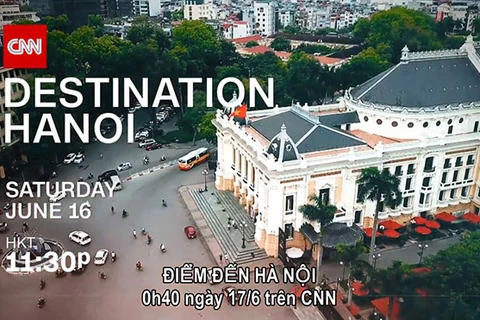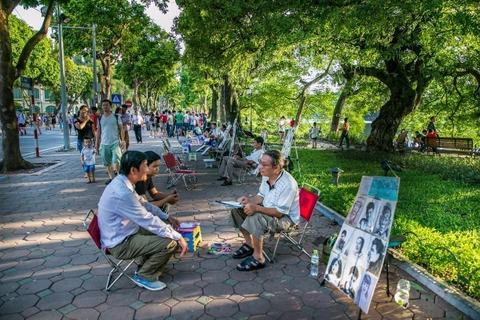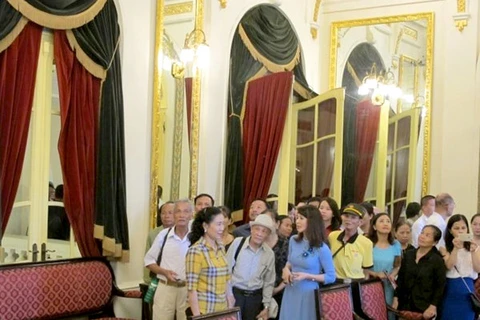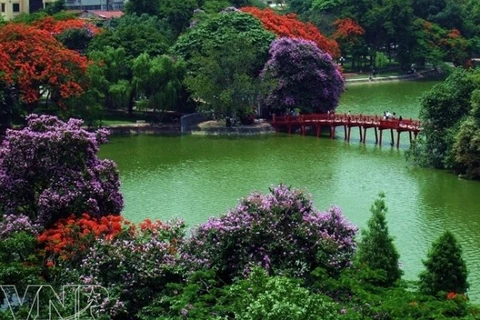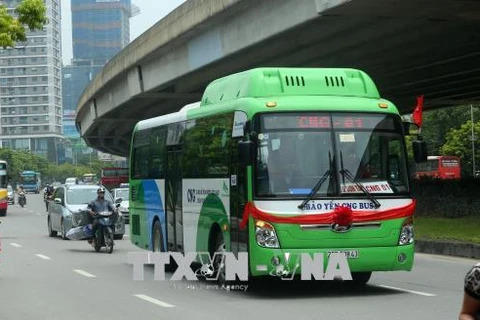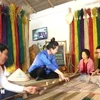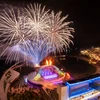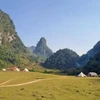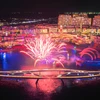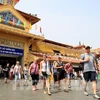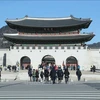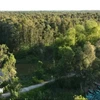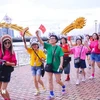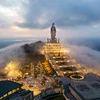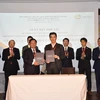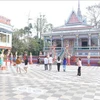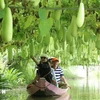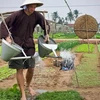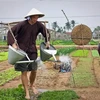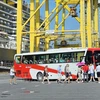Hanoi (VNA) – Representatives from 65 Japanese and Hanoi firms joined a programme to promote tourism in the capital Vietnamese city on August 24.
Japanese guests enjoyed folk music performances, watched a clip introducing Hanoi’s tourism which was produced by the US’ CNN television channel, and met with local businesses and the media to learn about the city’s tourism products and destinations.
They gained an insight into Hanoi’s tangible and intangible heritages, ecological tourism and entertainment areas, shopping centres, travel agencies, lodging facilities, transportation, and tourism linkage with other localities.
Tran Duc Hai, Director of the municipal Department of Tourism, said foreign arrivals to Hanoi grew by 18 percent annually during the 2015-2017 period, hitting 4.95 million people last year, up 23 percent year-on-year. In the first seven months of the year, the figure rose by 21 percent year-on-year to reach 3.4 million.
Japan remained among the top three sources of tourists to Hanoi with 290,170 arrivals last year, up 22 percent annually. The seven-month figure was 166,437, marking an 8 percent year-on-year increase.
Hai committed all possible support for Japanese travel agencies, press outlets, and tourists in the near future and expressed his hope that Japanese firms will offer more tours to Vietnam and Hanoi in particular.
Ara Saeko from JTB tourism company expressed wishes that Vietnam’s tourism sector would upgrade local infrastructure, relax visa procedures, adjust tour prices and better popularise destinations to attract more Japanese visitors.
Japanese guests also visited Thang Long imperial citadel, Van Mieu-Quoc Tu Giam, Hanoi’s Old Quarter, Duong Lam ancient village, Van Phuc silk village, and Ha Long Bay in the northern province of Quang Ninh. –VNA
Japanese guests enjoyed folk music performances, watched a clip introducing Hanoi’s tourism which was produced by the US’ CNN television channel, and met with local businesses and the media to learn about the city’s tourism products and destinations.
They gained an insight into Hanoi’s tangible and intangible heritages, ecological tourism and entertainment areas, shopping centres, travel agencies, lodging facilities, transportation, and tourism linkage with other localities.
Tran Duc Hai, Director of the municipal Department of Tourism, said foreign arrivals to Hanoi grew by 18 percent annually during the 2015-2017 period, hitting 4.95 million people last year, up 23 percent year-on-year. In the first seven months of the year, the figure rose by 21 percent year-on-year to reach 3.4 million.
Japan remained among the top three sources of tourists to Hanoi with 290,170 arrivals last year, up 22 percent annually. The seven-month figure was 166,437, marking an 8 percent year-on-year increase.
Hai committed all possible support for Japanese travel agencies, press outlets, and tourists in the near future and expressed his hope that Japanese firms will offer more tours to Vietnam and Hanoi in particular.
Ara Saeko from JTB tourism company expressed wishes that Vietnam’s tourism sector would upgrade local infrastructure, relax visa procedures, adjust tour prices and better popularise destinations to attract more Japanese visitors.
Japanese guests also visited Thang Long imperial citadel, Van Mieu-Quoc Tu Giam, Hanoi’s Old Quarter, Duong Lam ancient village, Van Phuc silk village, and Ha Long Bay in the northern province of Quang Ninh. –VNA
VNA

